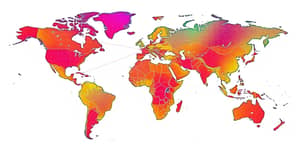In an era defined by rapid digitization and ever-evolving regulations, organizations face unprecedented challenges in meeting complex compliance requirements. Traditional, manual processes struggle to keep pace with global regulatory changes, leaving firms vulnerable to costly penalties and reputational damage. RegTech emerges as a transformative force that harnesses advanced technology to streamline compliance tasks, reduce risk, and foster transparency across industries.
Understanding RegTech: Definition and Scope
Regulatory Technology, commonly known as RegTech, refers to the deployment of advanced technologies—including AI, machine learning, big data to automate and enhance regulatory compliance and reporting. By leveraging cloud computing, blockchain, and natural language processing (NLP), RegTech solutions empower firms to interpret complex rules, monitor real-time activities, and adapt to regulatory shifts with agility.
This innovative sector primarily serves heavily regulated industries such as banking, financial services, and insurance, but its influence is expanding into healthcare, energy, and supply chain. As businesses pursue digital transformation, RegTech plays a critical role in ensuring operations remain compliant, efficient, and resilient.
Market Landscape and Growth
The global RegTech market showcases rapid growth and high potential, with its value estimated between $14.2 and $20.04 billion in 2024. Projections indicate a surge to $70.64 billion by 2030, and further expansion to $111.32 billion by 2034–2035, reflecting an impressive compound annual growth rate (CAGR) ranging from 18% to 24.2% over the next decade.
North America currently dominates the RegTech landscape, holding over 41% of market share in 2024. However, regions like Asia-Pacific and East Asia are emerging as dynamic growth hubs, driven by supportive regulatory frameworks and booming fintech ecosystems.
Drivers Behind RegTech Adoption
- constantly evolving and complex global regulations: Organizations must navigate AML, KYC, GDPR, and other rules that change frequently across jurisdictions, making manual compliance untenable.
- increased incidents of financial crime: Rising money laundering, fraud, and cyber threats compel firms to adopt automated compliance and real-time monitoring solutions.
- growth of digital banking and payments: The proliferation of online financial services and open banking frameworks intensifies regulatory scrutiny and reporting demands.
- faster, more accurate, cost-effective compliance: RegTech reduces manual errors, accelerates reporting cycles, and cuts overhead compared to traditional methods.
- stricter enforcement and rising penalties: Regulators are imposing heavier fines and more frequent audits, pressing organizations to maintain rigorous compliance standards.
Core Technologies Powering RegTech
Artificial intelligence (AI) and machine learning (ML) lie at the heart of many RegTech platforms, enabling predictive analytics and real-time risk assessment. These tools can detect anomalies, forecast potential compliance breaches, and generate actionable insights from vast data sets.
Big data analytics supports large-scale, real-time reporting, while immutable and transparent audit trails provided by blockchain ensure secure, tamper-proof records. Cloud computing platforms enhance scalability and agility, and NLP accelerates regulatory change management by interpreting complex legal texts. Robotic process automation (RPA) further streamlines repetitive tasks, freeing compliance teams to focus on strategic oversight.
Primary Use Cases and Applications
- Anti-Money Laundering (AML) & Know Your Customer (KYC): Automated customer onboarding, transaction screening, and risk profiling reduce manual effort and enhance accuracy.
- Fraud Detection and Prevention: AI-driven systems identify suspicious patterns in real time, mitigating risks before they escalate.
- Regulatory Reporting: Solutions auto-generate filings with precise formatting and deadlines, ensuring timeliness and reducing errors.
- Risk Management: Real-time dashboards and predictive models offer holistic views of compliance status and potential vulnerabilities.
- Identity Verification: Biometric authentication and digital identity platforms secure customer identities, crucial for fintech and digital banking.
- Financial Crime Prevention: Integrated tools address e-commerce fraud, insider threats, and statement manipulation to protect organizational integrity.
Leading RegTech Companies and Collaborations
- IBM
- MetricStream Inc.
- Nice Ltd.
- Thomson Reuters
- Deloitte
- PWC
- Jumio
- ACTICO
- Acuity
- Ascent Technologies
These industry leaders often collaborate with regulators, financial institutions, and technology partners to develop best practices, promote standardization, and drive innovation.
Regional Trends and Key Markets
While North America retains a leading position, Asia-Pacific and East Asia are fastest-growing markets, propelled by escalating digital adoption and supportive policies. India and China are anticipated to achieve CAGRs of 29.1% and 24.3%, respectively, through 2034. Europe and the UK continue to evolve robust compliance frameworks, balancing innovation with strong regulatory governance.
Large enterprises, particularly in the banking, financial services, and insurance (BFSI) sector, are the primary adopters of RegTech. However, small and medium-sized enterprises (SMEs) are increasingly embracing identity verification and AML solutions to streamline operations and maintain competitive parity.
Challenges and Risks
Despite its promises, RegTech implementation comes with hurdles. High initial costs, integration with legacy systems, and ongoing maintenance can strain budgets, especially for smaller firms. data privacy and cybersecurity considerations also demand careful attention to protect sensitive customer information and uphold compliance with global standards.
Regulatory fragmentation poses another barrier, as firms operating across borders must adapt to divergent rules and enforcement practices. Furthermore, a skills gap in technology and compliance expertise challenges organizations to recruit and retain talent capable of managing sophisticated RegTech platforms.
Looking Ahead: The Future of RegTech
As businesses continue to digitize, RegTech will expand into industries beyond finance, including healthcare, energy, and supply chain management. Close coupling with cybersecurity solutions will reinforce fraud prevention and data protection, creating integration with cybersecurity and data protection as a standard practice.
Collaborative ecosystems involving regulators, technology vendors, and end users will drive the development of shared standards and interoperable systems. The emergence of predictive and proactive compliance tools will enable organizations to anticipate regulatory changes, adjust strategies in advance, and proactively manage compliance risk.
Ultimately, RegTech symbolizes a shift from reactionary compliance to a forward-looking, strategic approach. By harnessing technology to navigate the complexities of regulation, organizations can achieve greater agility, resilience, and trust in a digital age.
References
- https://www.futuremarketinsights.com/reports/regtech-market
- https://www.verifiedmarketresearch.com/product/regtech-market/
- https://www.imarcgroup.com/regtech-market
- https://www.expertmarketresearch.com/reports/regtech-market
- https://www.datamintelligence.com/research-report/regtech-market
- https://www.globenewswire.com/news-release/2025/01/23/3014377/28124/en/Regtech-Market-Size-Regional-Share-Forecast-and-Growth-Opportunity-Analysis-with-Profiles-of-IBM-Deloitte-Thomson-Reuters-PWC-MetricStream-Jumio-ACTICO-Acuity-Ascent-Technologies-a.html
- https://www.grandviewresearch.com/industry-analysis/regulatory-technology-market
- https://regnosys.com/industry-news/global-regtech-market-estimated-to-reach-85-92-billion-by-2032/










